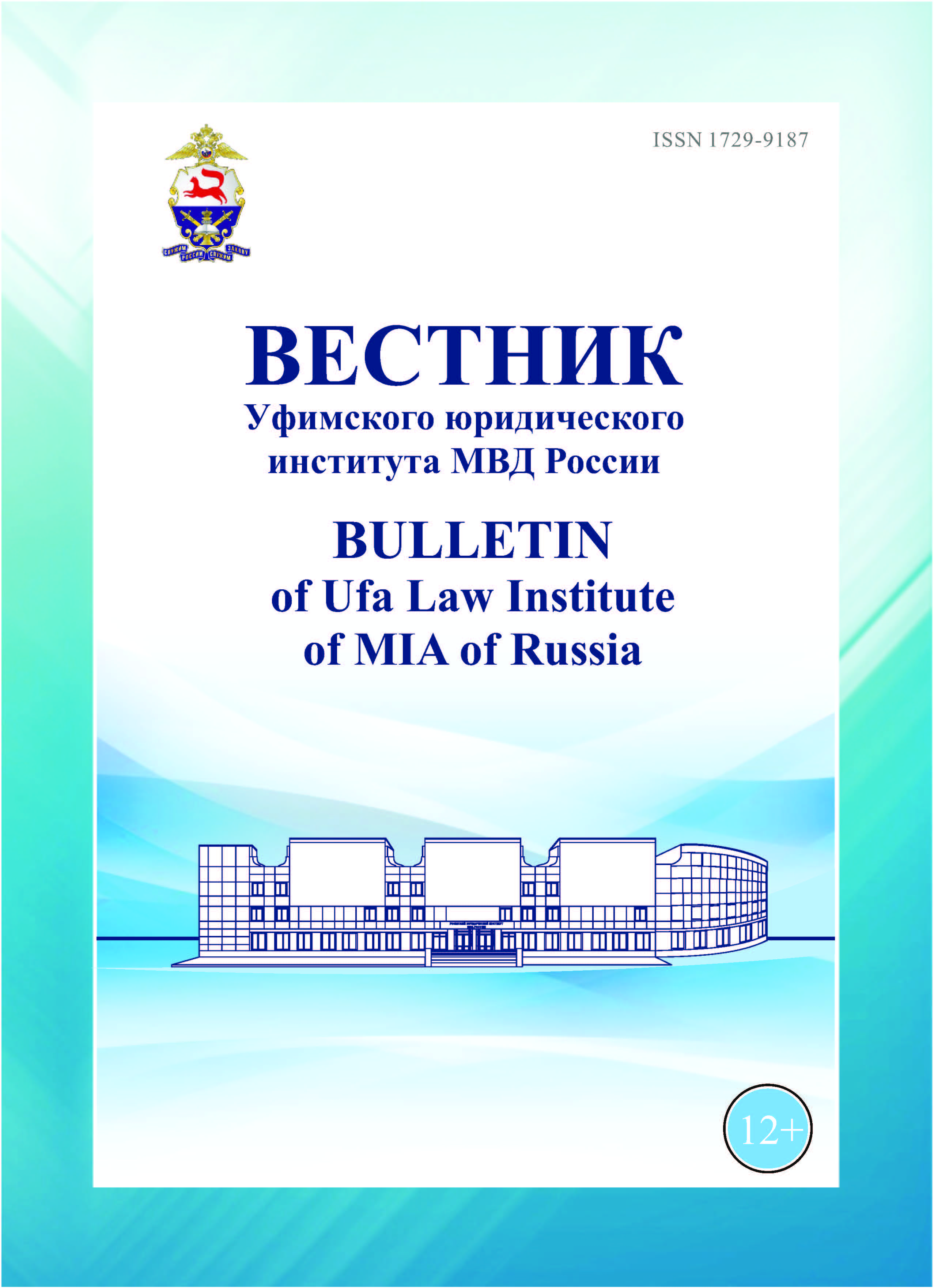UDC 338.2
The article examines the place of internal affairs bodies in the digitalization of the economy, in determining of which the authors proceeded from various statuses of internal affairs units in the digital economy (an economic entity of the digital economy; a subject of financial control; a subject engaged in countering crimes; a subject of the educational system). The proposed positions of the internal affairs bodies in the digital economy made it possible to determine the targets of proposals and recommendations aimed at improving the efficiency of the internal affairs bodies in the digital economy
digital economy, internal affairs bodies, role, digitalization
1. Kubasov I. A. Problematic issues of using artificial intelligence technologies in the activities of internal affairs bodies of the Russian Federation // Bulletin of Voronezh Institute of the Ministry of Internal Affairs of Russia. 2021. No. 3. P. 180–186. (In Russ.)
2. Romanov M. S., Didyuk A. Ya., Trifonenko N. M., Solodyankin D. V. The impact of digitalization on the activities of the Russian Ministry of Internal Affairs // Legal Science. 2022. No. 7. P. 48–51. (In Russ.)
3. Kubasov I. A., Sekisov B. V. Retrospective analysis of the development of information technologies in the management of internal affairs bodies of the Russian Federation // Academic thought. 2021. No. 4 (17). P. 90–93. (In Russ.)
4. Teppeev A. A., Urusov Z. Kh., Krainskaya G. S. Application of digital technologies in the activities of internal affairs bodies // Law and Management. 2022. No. 9. P. 107–110. (In Russ.)
5. Toropov B. A., Gonov Sh. Kh. Results of a study of the readiness of police officers to implement artificial intelligence in the operational activities of the internal affairs bodies of the Russian Federation // Proceedings of the Academy of Management of the Ministry of Internal Affairs of Russia. 2022. No. 2 (62). P. 160–167. DOIhttps://doi.org/10.24412/2072-9391-2022-262-160-167. (In Russ.)
6. Goroshko I. V. Digitalization is a modern trend in the development of law enforcement agencies // Observer. 2022. No. 2 (385). P. 98–110. DOIhttps://doi.org/10.48137/2074-2975_2022_02_98. (In Russ.)
7. Farakhiev D. M., Minzyanova D. F. Prospects for the implementation of information and communication technologies in the activities of operational police units to combat corruption // Modern Science. 2022. No. 1. P. 60–63. (In Russ.)
8. Gracheva O. A., Vishnevetskaya I. N. The use of information technologies in the activities of law enforcement agencies in the fight against corruption // Bulletin of the State Law Academy. 2021. No. 5 (142). P. 212–217. (In Russ.)
9. Kravchenko A. G., Ovchinnikov A. I., Mamychev A. Yu., Vorontsov S. A. The use of digital technologies in the field of anti-corruption // Administrative and municipal law. 2020. No. 6. P. 52–62. (In Russ.)
10. Usmanova O. L. The use of digital technologies in the investigation of corruption crimes in the healthcare sector // Sustainable development of Russia: legal dimension: collection of reports of the X Moscow Legal Forum. In 3 parts. Moscow: Moscow State Law University named after O. E. Kutafin, 2023. P. 567–570. (In Russ.)
11. Krylova D. V., Maksimenko A. A. The use of artificial intelligence in identifying and combating corruption: a review of international experience // Public Administration. Electronic newsletter. 2021. No. 84. P. 241–255. DOIhttps://doi.org/10.24412/2070-1381-2021-84-241-255. (In Russ.)
12. Ovchinnikov A. I. Anti-corruption in the context of digitalization: opportunities, prospects, risks // Journal of Russian Law. 2019. No. 11. P. 158–170. DOIhttps://doi.org/10.12737/jrl.2019.11.12. (In Russ.)
13. Moisievskaya A.K. Implementation of anti-corruption policy in the context of digitalization of the economy and society // Scientific notes of young researchers. 2018. No. 3. P. 62–68. (In Russ.)
14. Zarechnaya O. Yu., Sichinava Z. I., Cherepanov F. M., Yasnitsky L. N. On the possibility of creating a neuro-expert system for supporting decision-making in the field of sales // Artificial intelligence in solving current social and economic problems of the XXI century: a collection of articles based on the materials of the Second All-Russian Scientific and Practical Conference, held within the framework of Perm Natural Science Forum “Mathematics and Global Challenges of the 21st Century”. Perm: Perm State National Research University, 2017. P. 97–100. (In Russ.)
15. Miroshnichenko O. I., Filonenko T. V. Digital technologies as a factor in reducing corruption in the judicial system // Legal paradigm. 2020. Vol. 19. No. 2. P. 136–143. DOIhttps://doi.org/10.15688/lc.jvolsu.2020.2.20. (In Russ.)









